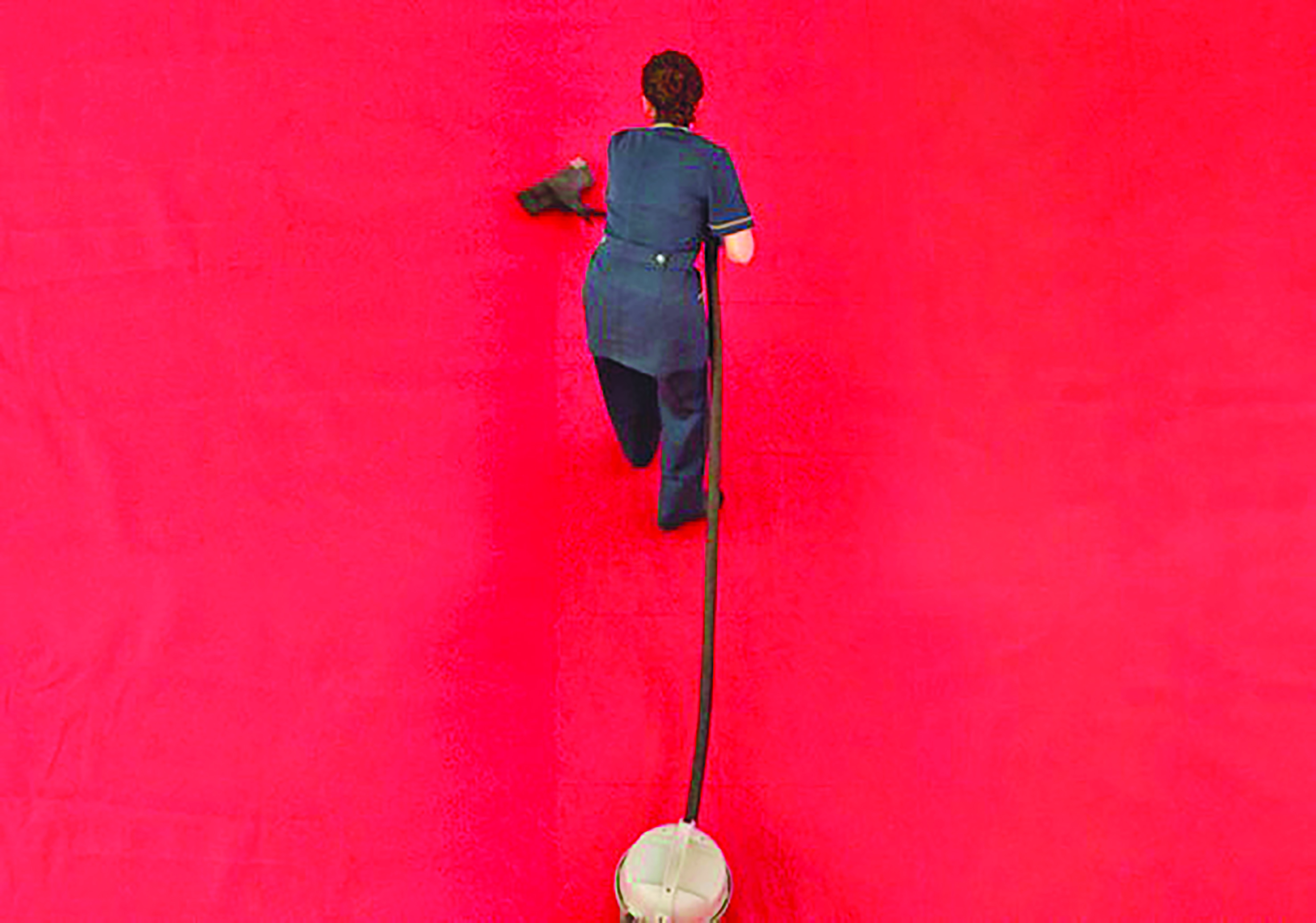
Women are oppressed all around the world, not just in Nepal and other South Asian countries. More oppressed are the uneducated and economically poor women, both at home and at work.
“Her Job”, a Greek film directed by Nikos Labot, is all about an oppressed woman who was confined to the boundary of the house and how liberated she felt after she started working outside.
The 87-minute film begins with the woman cleaning the floor of her home in Athens.
Panayiota (Marisha Triantafyllidou), a 37-year-old housewife, is living with her unemployed husband Kostas (Dimitris Imellos) and troublesome daughter, and timid young son.
The financial recession in Greece has directly affected her family. Her husband Kostas lost his job for some time and he even gambled away some money when he became jobless.
Panayiota is seen doing all the household chores from cleaning the house to dishwashing, cooking, washing clothes, serving food to her kids and husband, obeying her husband, caring for her children with full of devotion.
She represents a timid and vulnerable woman, who is seen as a full-time servant in the form of a wife and a mother.
Later, a neighbouring woman tells her that they have a new shopping mall called “Le Marche”, and asks Panayiota whether she will go there to work.
Because of the financial crisis, she immediately decides to work as a full-time cleaner in the mall. Mopping, scrubbing, and driving an industrial vacuum are her daily works.
After getting the job, her daily routine changes. She hangs her identity card around her neck and puts on her work attire and starts working gracefully.
A new glow of happiness and self-confidence shines on her face. She opens a bank account for the first time as well as learns to withdraw money using an ATM card.
When she learns to drive a car, it seems that she is turning another page in her life, which leads her to independence.
After joining the job, she becomes the source of income for the family. Even though the employer paid her less than what was written in the agreement, she happily does her work away from home.
In the first half of the film, Panayiota is never seen laughing and doing everything honestly. She always looks frightened and fragile.
At once, her friends at the mall throw a surprise birthday party for Panayiota in the locker room but, when she returns home, she finds that her own family has forgotten her birthday. However, she learns to smile and gives importance to her thereafter.
In an orthodox society, when a woman goes out to work and tries to make her own decisions, she is the first to face abuse at home. Even in the film, when the wife starts giving importance to her work, she faces abusive behaviour from her husband.
The husband’s ego can be clearly noticed in dialogue when Kostas said to Panayiota, “You’d still be in your village if it weren’t for me”.
The presentation of the story is very simple but the theme seeks to highlight a bitter reality of women in every society.
Although Panayiota is illiterate, other educated and working women also face exploitation in many ways. Male heroism and patriarchy still cling to the world. It is what the story of Her Job is shown in ongoing Nepal- EU film festival.
Had the film also incorporated the stories of men who encourage women to be independent, it would have sent a positive message to the entire society.
Directed by Nikos Labot, the film stars Marisha Triantafyllidou, Dimitris Imellos, Konstantinos Gogoulos, Maria Filini, Eleni Karagiorgi, Danai Primali.
The festival will continue till September 25.
Source : TRN,






